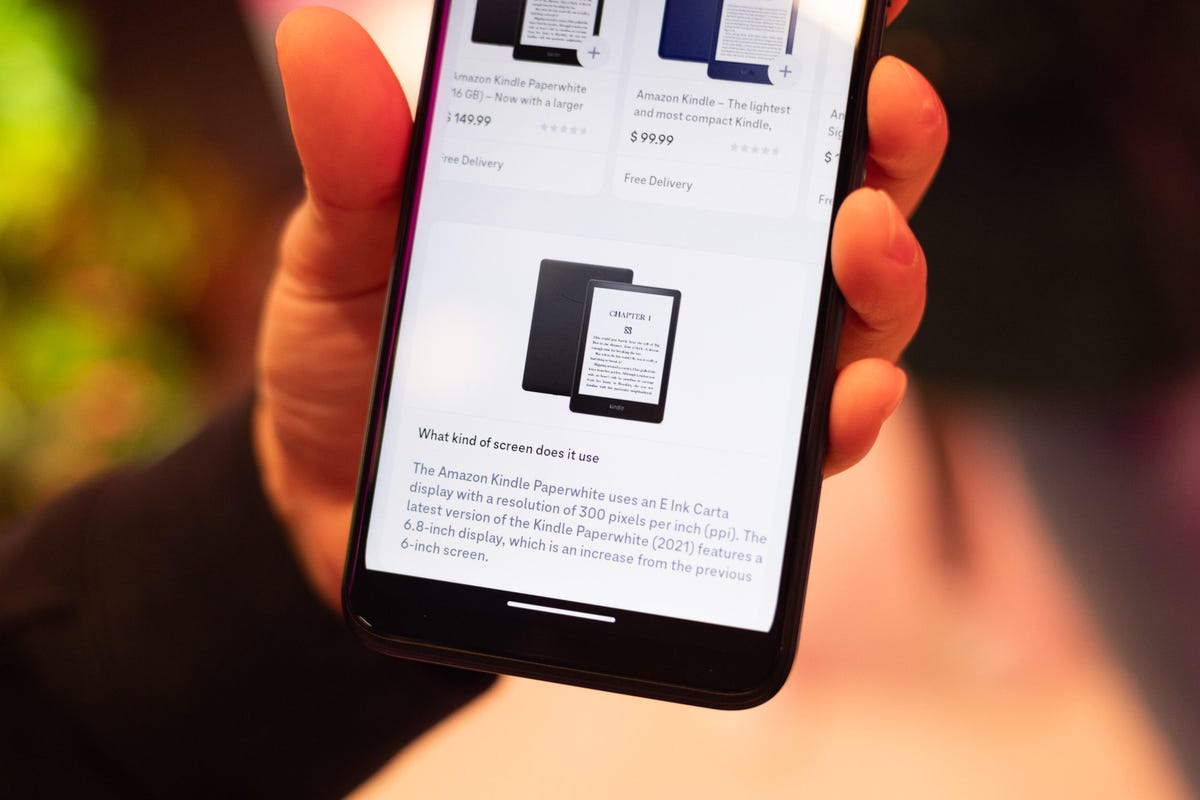In the Deutsche Telekom booth at Mobile World Congress, I’m watching a generative AI tool construct a custom phone interface to help me book a flight in real time. It’s breathtaking, and almost too much to take in — but in a good way.
The technology, currently called T Phone, is the combined effort of the German carrier and San Francisco-based artificial intelligence company Brain.AI.
As Brain.AI CEO Jerry Yue shows me what T Phone can do, he tells the device to book a flight from here in Barcelona to Los Angeles on March 12 for two people in first class. The phone pauses for a minute before pulling up a list of flights, methodically arranged on the home screen. Once Yue finds the best flight, he can pay for it using his mobile payment system of choice, without having to swap to another app or service.
“Usually we do a lot of things in our head when we’re using our app systems today,” Yue tells me. “Now you can just throw an idea at an AI and have it build out that entire flow for you.”
A little more than a year on from the era-defining release of ChatGPT, the 2024 edition of MWC is all about the promise of AI. Beyond the hype, some of the most interesting applications are those in which AI has been incorporated into devices, harnessing their computing power to do exciting new things — some of which are easier to comprehend than others.
The T Phone concept is this: Instead of revolving around apps, as we’re accustomed to, this phone uses generative and interactive AI to create a natural-feeling back and forth that will help you navigate a task. It has an AI button on the side that, when pressed, will activate your AI assistant, which is waiting to spring into action and fulfill your command like your personal genie.
Is it our destiny to live in an app-free world? Tim Hoettges, Deutsche Telekom’s CEO, certainly thinks so. Speaking at MWC on Sunday, he predicted the death of phone apps within the next five to 10 years. His reasoning? AI is going to kill them.
And his evidence? The T Phone.
<figure uuid="3434ab76-7f3a-4ec4-b633-0034c3e37d0a" size="large" float="none" image-caption="
The T Phone generated this interface on its own.
” image-credit=”Andrew Lanxon/CNET” image-alt-text=”Phone screen showing flight details” image-filename=”brain-ai-deutsche-03.jpg” image-date-created=”2024/02/29″ image-width=”3500″ image-height=”2334″ image-do-not-crop=”false” image-do-not-resize=”false” image-watermark=”false” lightbox=”false” edition=”us” class=”c-shortcodeImage u-clearfix c-shortcodeImage-large c-shortcodeImage-hasCaption”>

Brain.AI surfaces product recommendations from more than 7,000 retailers.
Yue shows me what he means by pressing his thumb on a Kindle that’s been suggested in shopping results and asking the T Phone to show him an unboxing video. The screen divides in the middle, and in the bottom half a YouTube video appears. He continues to ask questions — what size is the screen, how do the reviews compare it to similar products and so on. Each time, the interface regenerates or readjusts to keep pace with his queries. “It’s literally flowing with my thinking,” he says.
I get it. What seemed so foreign to me when I first explored Yue’s vision now feels like a glimpse of things to come. I can envision how communicating with our devices this way could feel natural and humanizing compared to how we do things now.
“Generative AI and AI increases the productivity that we have in our daily lives, takes away some of the mundane and routine work and gives you more time to do what’s probably much more important,” Qualcomm’s Asghar says.
“This is just kind of the initial phase here,” he adds. “There’s a lot more to come.”


